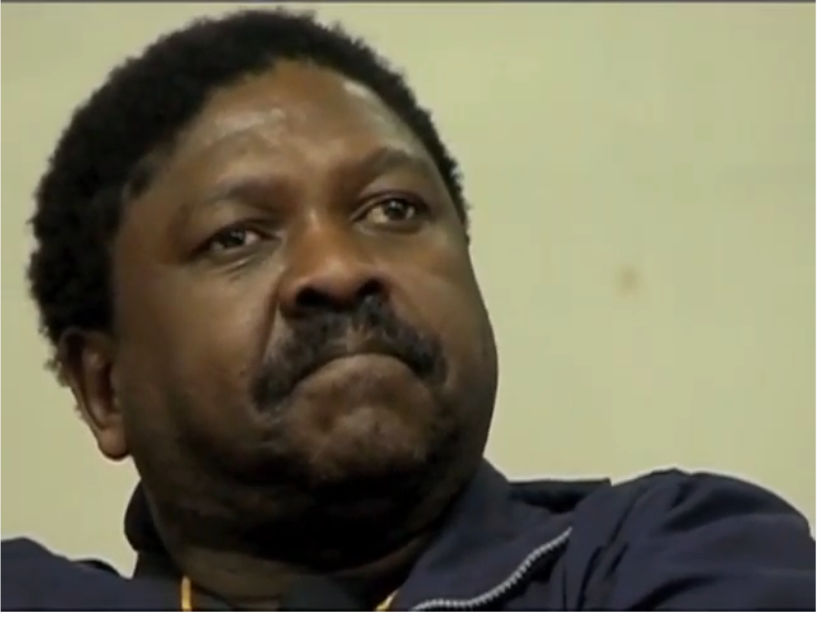Obituary of Oupa Lehulere
Oupa Lehulere was born in Cape Town in 1960. After primary school he went to Fezeka High School in Gugulethu. Fezeka High School had a history of political activism, with many senior students active in Black Consciousness-inspired student organisations.
Oupa’s first introduction to resistance politics was the introduction of Afrikaans as a medium of instruction in schools in 1975. But it was in 1976 with the students’ uprising that he became politically active. Although new to student politics, Lehulere became one of the student leaders who organised and directed the student uprising in Cape Town which took off on 11 August 1976.
Since 1976, Lehulere has been involved in all the various uprisings in 1980 as a student leader, in 1985 as a student activist at UCT, in the 1990s as an activist linked to communities and the labour movement; and since then as an activist in the social movements that arose in the 2000s.
Lehulere was introduced to Marxism in the late 1970s and has since framed his political activism in the broad Marxist traditions. The introduction to Marxism interested Lehulere in Marxist theory and has since led to an activism that has put theoretical questions and strategy at the centre of his political activism.
Since the mid 1990s Lehulere has been based at Khanya College, a movement building institution that arose out of the turbulent 1980s. In the late 1980s and early 1990s Lehulere taught academic courses – sociology and economics – at Khanya College. Since the mid-1990s his work has focused more on cadre formation and political education in the labour movement and the social movements.
A month before his death Oupa launched his website. The website brings together his political and theoretical writings stretching over a period of more than 30 years. Lehulere’s interest in Marxism and theory began in the late 1970s when he joined Marxist study groups in Cape Town. In the mid 1980s as an activist, Lehulere spent a lot of time grounding himself in the Marxist classics and this triggered his interest and commitment to an activism that was grounded in the unity of theory and practice.
The idea of the website was therefore to bring together numerous writings that can broadly be understood as covering three major historical periods in the development of the mass movement. The first period is the transition from apartheid capitalism to post-apartheid capitalism. The second part of the writings of this period trace the ANC in power and its capitulation to white monopoly capital and its global allies. The third period broadly covers the writings from the Marikana moment to the present.
An additional body of work Oupa hoped to add later, is an archive of writing by a range of activists from the late 1980s to the 1990s. In the late 1980s Lehulere joined a group of young militants who could see the unfolding betrayal of the working class by the ANC and the SACP. These militants had organised themselves into the Workers International League of South Africa (WILSA). Although WILSA dissolved in the mid 2000s, it has left the working class and its militants a rich heritage of the theory and practice of left politics.
Lehulere hoped to provide through his writings and the WILSA Papers, a different perspective of how the transition unfolded and how South Africa arrived where it is today.
On 29 November 2021, Lehulere passed away after a long battle with cancer. He is survived by his lifelong partner, Maria Van Driel; daughter, Searatoa Van Driel; son, Obakeng Ramagaga; his older sisters, Seapei, Mogodi, Sophie; younger brother, Itumeleng Wa-Lehulere and was also a Beloved uncle. Lehulere was loved and respected by many, the Lehulere and Van Driel families, as well as activists, colleagues, friends and comrades. He will be sorely missed and we carry his spirit of lifelong struggle for the working class with us as we march onwards!
Republished in Labour Bulletin
